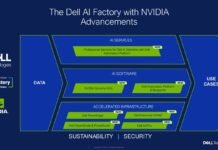“The future of technology lies in its ability to adapt and evolve with human needs,” said Bill Gates. This statement perfectly captures the essence of the digital transformation happening today. The rise of intelligent systems is reshaping industries, particularly in the realm of digital marketing. These systems are designed to process data, act autonomously, and enhance efficiency in ways previously unimaginable1.
Businesses are now leveraging these advanced tools to streamline their workflows. From generating high-quality material to optimizing online visibility, the impact is profound. Companies report significant reductions in workforce costs due to automation1. This shift not only saves time but also ensures precision and consistency in output.
Personalization has become a key focus, with tailored material driving higher engagement rates2. Industries like e-commerce, media, and healthcare are witnessing remarkable improvements. The ability to produce multiple variations simultaneously has increased efficiency, making it easier to meet diverse audience needs1.
As these technologies continue to evolve, their role in digital marketing will only grow. The integration of multimedia elements and real-time adjustments further enhances their effectiveness2. This ongoing transformation is setting new standards for quality and performance in the digital landscape.
Key Takeaways
- Intelligent systems enhance efficiency and precision in digital marketing.
- Automation reduces workforce costs significantly.
- Personalized material boosts user engagement rates.
- Multiple content variations increase production efficiency.
- Real-time adjustments improve SEO effectiveness.
Introduction to the AI Revolution in Digital Marketing

The digital marketing landscape is undergoing a transformative shift with the integration of intelligent systems. These tools are designed to process vast amounts of datum and execute tasks autonomously, reshaping how businesses approach their strategies.
Defining AI Agents and Their Role
An AI agent is a software application that operates independently to achieve specific goals. In digital marketing, these agents analyze user behavior, personalize campaigns, and optimize advertising budgets in real-time3. Their ability to break down complex tasks into manageable processes enhances efficiency and precision.
Overview of Content Creation and SEO Challenges
Traditional methods often struggle with manual production and rapid scaling demands. Businesses face issues like inconsistent quality, slow turnaround times, and limited personalization. AI-driven tools address these challenges by automating repetitive tasks and generating multiple content variations simultaneously4.
Integrating smart systems into marketing strategies is no longer optional. Companies leveraging these technologies report higher engagement rates and improved operational performance3. This shift underscores the importance of adopting advanced tools to stay competitive in today’s fast-paced digital environment.
The Evolution of AI Agents in Modern Business

From basic automation to sophisticated decision-making, intelligent systems have reshaped modern business operations. Their journey reflects a history of innovation, adaptability, and transformative breakthroughs.
Historical Perspective and Key Innovations
The origins of intelligent systems trace back to simple chatbots designed for customer service. Over time, advancements in machine learning and data processing have enabled these tools to handle multi-step tasks with contextual memory and real-time feedback5.
Key innovations, such as natural language processing and predictive analytics, have played a pivotal role. These technologies have reduced processing time by 50%, allowing businesses to gain real-time insights6. The focus has shifted from manual creation to automated solutions that enhance efficiency and precision.
Transformative Trends in Digital Marketing
Intelligent systems have revolutionized digital marketing by improving content quality and personalization. Companies report a 30% increase in conversion rates due to tailored strategies6. This shift has made intelligent tools central to marketing growth.
Another trend is the emphasis on deep insights derived from data analysis. Intelligent systems can identify patterns humans might miss, improving business strategies by 35%6. These advancements highlight the importance of integrating intelligent tools into modern workflows.
As the global market for intelligent systems continues to grow, businesses must adapt to stay competitive. The future lies in leveraging these tools to enhance productivity, engagement, and decision-making5.
How AI Agents Are Revolutionizing Content Creation and SEO

Modern marketing is being reshaped by the power of intelligent automation. These systems are not just tools; they are game-changers in how businesses produce and optimize their material. From faster production to enhanced precision, the benefits are undeniable.
Impact on Content Quality and Production Time
Intelligent systems can process vast amounts of information in seconds, significantly reducing the time for topic ideation and research compared to human efforts7. This speed allows teams to produce more output without a proportional increase in human resources7.
Consistency in voice and style is another advantage. Once trained, these systems maintain uniformity across various pieces, a challenge for human writers7. This ensures high-quality material that resonates with audiences.
Enhancing SEO Through Intelligent Automation
Intelligent tools are transforming search strategies by automating keyword research and competitor analysis. For example, Skott AI conducts advanced audience insights, improving content relevance and effectiveness8.
These systems also optimize production pipelines, ensuring articles are tailored for readability and keyword integration. William by StoryChief, for instance, offers SEO-optimized creation, boosting search engine rankings8.
By analyzing performance metrics and user engagement data, these tools refine strategies in real-time. This leads to better placements and higher visibility7.
Building an Organizational Strategy for AI Integration

Organizations are increasingly adopting intelligent systems to enhance their operational efficiency. A well-defined strategy is essential to ensure seamless integration and maximize the benefits of these advanced tools.
Developing Use Cases and Setting Clear Objectives
Before implementing intelligent systems, it’s crucial to identify specific use cases. These scenarios should align with organizational goals, such as improving user engagement or streamlining repetitive tasks9.
Clear objectives provide a roadmap for success. For example, companies that set measurable goals see a 50% increase in productivity when using intelligent tools10. This step ensures that the integration process is focused and results-driven.
Designing an Agentic Framework for Scalable Solutions
An agentic framework allows organizations to create scalable and repeatable solutions. This involves selecting the right tools and platforms to support long-term growth11.
Continuous optimization is key to maintaining effectiveness. By analyzing performance metrics, businesses can refine their strategies and improve engagement rates9. This approach ensures that intelligent systems remain aligned with evolving needs.
Finally, fostering a culture of experimentation encourages innovation. Teams that embrace this mindset report higher levels of success in integrating intelligent tools9.
Agentic Framework and Technical Essentials

The deployment of intelligent systems requires a robust technical foundation to ensure scalability and efficiency. Organizations must focus on key building blocks like memory, state management, and automated resource allocation to maximize performance12.
Resource Management and System Automation
Effective resource management is critical for reducing manual effort and improving operational efficiency. Automated systems can allocate computing resources dynamically, ensuring optimal performance without human intervention13.
For example, frameworks like Lang Graph emphasize memory and state management, enabling smooth interactions across multiple conversations simultaneously12. This approach minimizes downtime and enhances user experience.
Leveraging Open-Source Tools and Frameworks
Open-source tools are transforming how organizations build and deploy intelligent systems. Platforms like Lang Graph and API connectors enable rapid deployment and scalability, reducing implementation costs13.
These frameworks also support continuous learning, allowing systems to adapt to changing conditions and improve over time12. This adaptability is essential for maintaining relevance in dynamic environments.
By integrating these tools, businesses can streamline workflows and focus on high-level strategies. For instance, AI-driven tools can automate repetitive tasks, freeing up resources for more strategic initiatives12.
Real-world examples highlight the benefits of adaptive frameworks. Companies using these systems report significant improvements in efficiency and audience engagement13. This underscores the importance of adopting advanced technical solutions to stay competitive.
Optimizing SEO with AI-Driven Strategies

The future of search engine optimization lies in leveraging advanced tools to automate and refine strategies. These systems streamline critical tasks, enabling marketers to focus on high-level planning and creativity.
Automating Keyword Research and Competitor Analysis
Advanced tools can automate keyword research, a task that traditionally takes hours or even days. By analyzing top search results and identifying long-tail keywords, these systems provide actionable insights in minutes14.
Competitor analysis is also streamlined. Tools can evaluate multiple competitors simultaneously, offering detailed reports on their strategies and identifying gaps to exploit14. This efficiency gives businesses a competitive edge in crowded markets.
Real-Time Content Optimization and Performance Tracking
Real-time adjustments are a game-changer for SEO. Tools analyze user behavior and search trends, dynamically optimizing content to meet Google’s evolving standards15.
Performance tracking ensures continuous improvement. By monitoring metrics like click-through rates and bounce rates, marketers can refine their strategies for better results16. This approach keeps content relevant and high-performing.
Integrating these tools with platforms like Google Search Console provides comprehensive insights, reducing the need for multiple expensive solutions14. This streamlined approach saves time and resources while improving outcomes.
Real-World Applications and Success Stories
Real-world examples highlight the transformative power of intelligent systems. Businesses across industries are leveraging these tools to enhance customer experience, streamline operations, and achieve measurable success. From personalized campaigns to optimized media strategies, the impact is undeniable.
Case Studies in Digital Marketing Transformation
Netflix uses advanced algorithms to analyze user behavior and deliver personalized recommendations, resulting in billions of hours of streamed content monthly17. Similarly, Walmart’s intelligent system monitors customer purchases and seasonality trends, optimizing stock levels and reducing waste17. These examples showcase how automation and personalization drive efficiency and customer satisfaction.
Another notable case is Coca-Cola, which utilized intelligent tools to create ad variations tailored to different demographics. This approach maximized engagement and improved campaign performance17. Such strategies highlight the importance of aligning user intent with personalized content.
Practical Examples of Enhanced User Engagement
Sephora’s intelligent chatbot provides personalized product suggestions, enhancing customer engagement and satisfaction17. Similarly, Volkswagen’s predictive system analyzes online search histories to tailor marketing strategies, increasing conversion rates17. These tools not only improve user experience but also ensure consistency across media platforms.
In healthcare, intelligent systems have reduced review times by 30%, optimizing approval processes and improving efficiency18. This demonstrates how automation can transform industries beyond marketing, delivering tangible benefits.
“The future of technology lies in its ability to adapt and evolve with human needs,” said Bill Gates. This statement resonates with the success stories of businesses leveraging intelligent systems to meet customer expectations.
These real-world applications prove that integrating intelligent tools into workflows is not just a trend but a necessity for growth and efficiency. By focusing on personalization, automation, and user intent, businesses can achieve remarkable results and stay ahead in today’s competitive landscape.
Challenges, Best Practices, and Future Directions
Effective management of intelligent systems requires addressing key challenges while embracing future opportunities. From ensuring data quality to balancing automation with human oversight, businesses must adopt a strategic approach to maximize efficiency and minimize risks.
Data Quality, Infrastructure, and Human Oversight
High-quality data is essential for intelligent systems to function effectively. Poor data can lead to inaccurate outputs, undermining the entire content strategy19. Organizations must consolidate data from disparate sources to create a unified platform for analysis and decision-making19.
Infrastructure plays a critical role in supporting these systems. SaaS 2.0 frameworks are necessary to handle complex tasks and ensure scalability19. However, even with advanced tools, human oversight remains crucial to validate results and maintain ethical standards20.
Strategies to Mitigate Risks and Enhance Efficiency
To mitigate risks, businesses should focus on continuous improvement and adaptability. Regularly updating the content strategy ensures alignment with evolving digital trends21. Automation can handle repetitive tasks, but human creativity is still needed for high-level planning and innovation20.
Platforms must evolve to meet changing technological requirements. Integrating predictive analytics and real-time adjustments can enhance performance and user engagement21. This way, businesses can stay competitive in a rapidly changing landscape.
Finally, fostering a culture of experimentation encourages teams to explore new ways of leveraging intelligent systems. By combining automation with human expertise, organizations can achieve long-lasting efficiency and growth21.
Conclusion
Artificial intelligence has redefined digital marketing, offering tools that enhance efficiency and innovation. From automating repetitive tasks to optimizing strategies, these systems have transformed how companies approach their workflows22.
Adopting robust integration practices is essential for long-term success. Companies must focus on continuous research and performance monitoring to stay competitive23. This ensures that strategies remain aligned with evolving trends and user needs.
Looking ahead, artificial intelligence will continue to drive progress. By leveraging data-driven insights, businesses can achieve higher engagement and improved outcomes24. The future of digital marketing lies in embracing these advancements to unlock new levels of efficiency and creativity.
FAQ
What is the role of AI in digital marketing?
How does AI improve content quality?
Can AI automate SEO processes?
What are the benefits of integrating AI into marketing strategies?
Are there challenges in using AI for marketing?
How does AI impact user engagement?
What tools are commonly used for AI-driven marketing?
What is the future of AI in content strategy?
Source Links
- How AI Agents Are Revolutionizing Content Writing
- Transform Your Content Marketing with AI Agents | Saffron Edge
- Digital Marketing and the AI Revolution – Yeow’s Website
- AI Revolutionizing Digital Marketing
- AI Agents: The Future of Intelligent Enterprise Learning Systems – Beyond Generative AI
- Top 15 AI Agent Use Cases in Business
- Content Creation AI Agents – Relevance AI
- 6 Best AI Agents for Content Marketing in 2025 | NoGood
- Using Change Management To Drive Effective AI Adoption In Marketing Organizations | Nowspeed
- The Ultimate Guide to Generative AI for Businesses: Understanding, Benefits, Limitations, and Use Cases Across Industries
- 10 ways to leverage generative AI for advanced SEO
- How Agentic AI Is Revolutionizing Digital Marketing
- AI Agents vs Agentic AI: A Clear Guide to the Key Differences
- AI SEO Agents: 10 Strategies to Boost Search Rankings Using AI
- SEO Optimization AI Agents – Relevance AI
- How AI is Revolutionizing SEO in 2025: A Comprehensive Guide
- SEO title: Top AI in Marketing Examples: Real-World Use Cases – Sembly AI
- 40 AI Agent Use Cases Across Industries [+Real World Examples]
- How AI agents are revolutionizing digital marketing
- AI Agents in Content Marketing: The Ultimate Guide for 2025
- 6 AI-Driven Content Strategies + Benefits, Challenges, & Expert Tips
- How AI is Revolutionizing Digital Marketing: The Latest Trends and Innovations
- The Future of AI in Content Creation: Trends and Predictions
- Autonomous AI Agents in SEO: The Future of Search Engine Optimization







